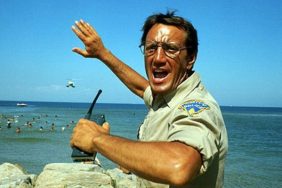10. Wag the Dog (dir. Barry Levinson, 1997)

New Line Cinema
Comparing politics to show business is an extended critical tradition, and it doesn’t take much cognitive stretching to see that both are inherently theatrical, and both feature no small amount of “spin” to maintain a public image. Publicity is all, and the salable narrative about a politician is more or less handled the same way as a Hollywood screenplay.
In Barry Levinson’s Wag the Dog, co-written by David Mamet, a movie producer is hired to help construct a fictional war to cover up a presidential sex scandal. The story, of course, becomes larger than any truth could ever become. We must be wary of the narratives we construct about politicians. Because they are Hollywood fictions.
9. The Battle of Algiers (dir. Gillo Pontecorvo, 1966)

Rialto Pictures
Gillo Pontecorvo’s documentary-style account of the Algerian struggle against French domination has lost none of its power more than 50 years after its creation. Told from the point of view of fighting Algerians, its no-apologies depiction of extreme, desperate, guerrilla warfare (some would call it terrorism) mounted against the ruinous effects of colonialism would come to provide a blueprint for other political struggles, and caused the film to be banned in France for years. Its visual storytelling also set the tone for war movies to come, inspiring the next generation of cinematographers to get on the ground with the troops. For students of history, both international and cinematic, it still hits hard.
8. Lincoln (dir. Steven Spielberg, 2012)

Walt Disney Studios
Many of the movies on this list are selling audiences on the awesome and influential power of politics. Many of the other movies are, conversely, accusing the very concept of politics of being flawed, human, corrupt. Steven Spielberg’s fiercely intelligent Lincoln manages to do both, and always at the same time, by dramatizing in detail the ethical sacrifices that Abolitionists were forced to make in order to end the immoral institution of slavery.
Daniel Day-Lewis plays Abraham Lincoln, and instantly assumes the mantle from the opening scene: this is the Abraham Lincoln we will hear in our heads. And he fights a brutal battle in a very grey area to pass the 13th Amendment, a war waged not just on the battlefield but in offices and in the streets, as votes are finagled and deals made just barely on the right side of the law (and sometimes, you’re not so sure). Spielberg keeps it all spirited and engaging, and Tony Kushner’s spry screenplay keeps all the complexities easy to follow. Lincoln is the best, worst and most fascinating of politics.
7. Election (dir. Alexander Payne, 1999)

Paramount Pictures
Election is not only a great satire of American politics, as it forgoes the macro and goes micro with a rivalry between a student and a teacher during what should be an innocent high school election, but it also perfectly skewers non-political things we look for in a candidate. America is a place built on the mythos of hard work = success, but there need to be setbacks along the way—we are skeptical of anyone we perceive as having everything handed to them.
Mr. McAllister (Matthew Broderick) thinks straight-A’d Tracy Flick (Reese Witherspoon) is only in various activity committees to try to get into a better college. It’s a foregone conclusion that she’ll win the class presidency, but competition is the key to American democracy, so he peps up the high school quarterback who recently suffered a setback (Chris Klein) as her opposition. Tracy needs to suffer failure (or humility) in order to become a better candidate person.
6. In the Loop (dir. Armando Iannucci, 2009)

IFC Films
Armando Iannucci (creator of HBO’s Veep) directed and co-wrote this blistering comedy about a U.S. and U.K. plan to invade an unspecified Middle Eastern country. Offhand comments become major news stories requiring spin control, international diplomacy, personal reckonings, and a mega-ton of electrifying insults.
Its tightly-wound ensemble cast includes Doctor Who’s Peter Capaldi, Anna Chlumsky, and James Gandolfini, and its script gives all of them a chance to verbally scald one another as they attack the depressing realities of world powers cranking up the war machine. A worthy successor to the brutal Dr. Strangelove, its fury is only matched by its accuracy.
Next: #5-2








